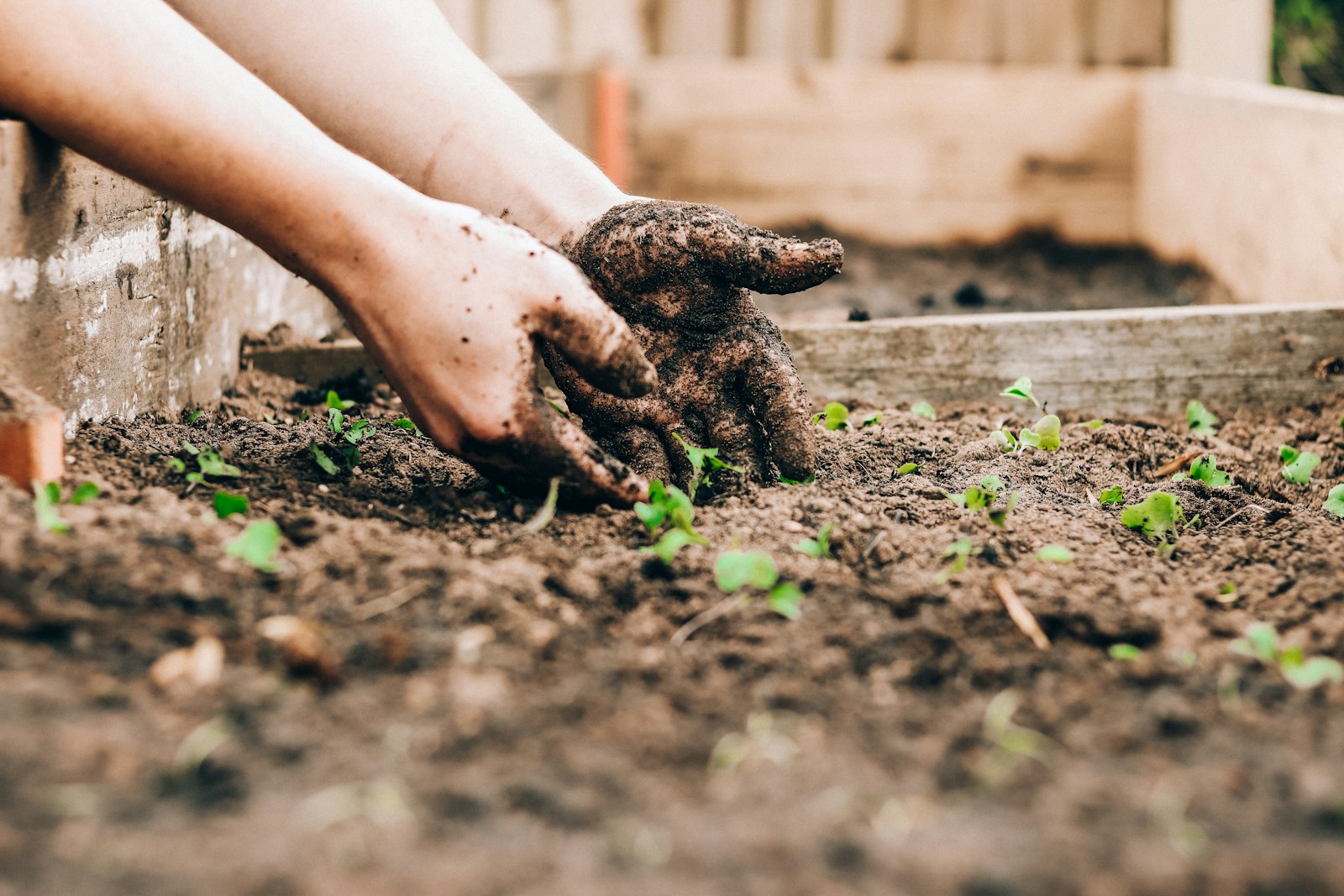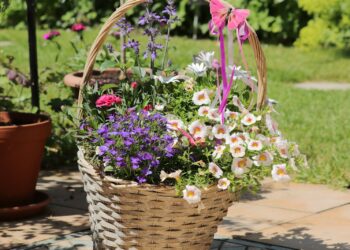
Composting is a sustainable way to reduce waste and enrich soil for gardening. Proper composting involves balancing ingredients, managing the pile, and understanding the process to create nutrient-rich compost. Here’s a detailed guide on how to compost effectively and reap the benefits for your garden and the environment.
Understanding the composting process
Composting is a natural process where organic matter decomposes into a nutrient-rich soil amendment called compost.
- Ingredients: Combine “greens” (nitrogen-rich materials like vegetable scraps) and “browns” (carbon-rich materials like leaves and cardboard) in a ratio of roughly 2:1.
- Aeration: Turn or aerate the compost pile regularly to provide oxygen, which speeds up decomposition and prevents unpleasant odors.
- Moisture: Maintain a moist, but not soggy, environment by watering occasionally, especially during dry periods.
Starting your compost pile or bin
Choose a suitable location and method for composting based on your space and needs.
- Location: Select a well-drained spot with good air circulation, ideally in partial shade to prevent excessive drying.
- Methods: Use a compost bin, tumbler, or create a simple pile on bare soil. Each method has advantages in managing heat and moisture levels.
Tip
Maintain a balance of “greens” (nitrogen-rich) and “browns” (carbon-rich) materials in your compost pile to ensure efficient decomposition. Regular turning and monitoring moisture levels will help produce quality compost for your garden.
Maintaining the compost pile
Regular maintenance ensures efficient decomposition and quality compost.
- Turning: Rotate or mix the compost pile every 1-2 weeks to aerate and blend materials. This encourages even decomposition and prevents matting.
- Monitoring: Check moisture levels and adjust as needed. The compost should feel like a damp sponge.
- Adding materials: Continuously add kitchen scraps, yard waste, and other organic matter to maintain a healthy balance of greens and browns.
Troubleshooting common composting issues
Address common challenges to optimize composting success.
- Smell: If the compost smells bad, it may be too wet or lack oxygen. Turn the pile and add more browns to absorb excess moisture.
- Pests: To deter pests like rodents, avoid adding meat, dairy, or oily foods to the compost pile. Cover fresh additions with existing materials.
- Slow decomposition: Ensure the pile has enough nitrogen-rich greens and turn it more frequently to accelerate decomposition.
Using compost in your garden
Once compost has decomposed into dark, crumbly soil, it’s ready to use as a nutrient-rich amendment.
- Application: Spread compost around plants, mix it into soil for new plantings, or use it as mulch to improve soil structure and fertility.
- Benefits: Compost enriches soil, improves moisture retention, and reduces the need for chemical fertilizers.
My personal experience with composting
I started composting in my backyard with a simple bin. By following the principles of balanced ingredients, regular turning, and monitoring moisture levels, I produced nutrient-rich compost that transformed my garden soil. The process not only reduced my household waste but also enhanced plant growth and health.
Conclusion
Composting is a rewarding practice that benefits both the environment and your garden. By following these steps for proper composting, you can efficiently recycle organic waste into valuable compost and enrich your garden soil naturally.
Frequently asked questions
- Can I compost indoors? Yes, you can compost indoors using a special bin designed for small-scale composting. Use mainly kitchen scraps and avoid materials that attract pests.
- How long does it take to make compost? Composting time varies based on factors like materials used, environmental conditions, and management practices. Typically, compost can be ready in 2-6 months.
- What should not be composted? Avoid composting meat, dairy products, oily foods, and pet waste, as these can attract pests and create odor issues in the compost pile.
Sources
1. Environmental Protection Agency – Composting At Home 2. The Spruce – How to Compost
About me:
I’m Emmely, a home improvement enthusiast with a passion for budget-friendly makeovers. With years of experience in DIY projects and a love for creative solutions, I enjoy sharing tips and tricks to help others transform their spaces without breaking the bank. I believe that a beautiful home doesn’t have to be expensive, and small changes can make a big impact.



